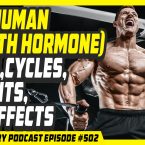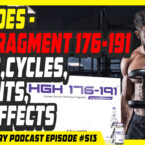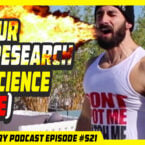Sign up to Get FREE Steroids, SARMS, Peptides eBooks
It is commonly thought that the most widely used performance enhancing drugs in Major League Baseball are Steroids and HGH. However, those inside baseball know that amphetamines rule the diamond as they provide numerous benefits to the players that the public may not know about.
Here's a Random Baseball Headline: Yet another Major Leaguer is suspected of using steroids and baseball is awaiting test results.
Does this type of headline look familiar? It should ring a bell to anyone who pays any attention at all to sports. That’s because headlines such as these tend to dominate the sports section of the newspaper every week. From the confessions of Jose Conseco that still seem to keep rolling to the all-out assault on Barry Bonds and his milestone accomplishments, the media has never had so much material to work with.
Headlines and home runs have definitely brought baseball back from its sinking ratings and half empty stadiums caused by the 94’ strike. And to what does the MLB owe their revival to? Performance-enhancing drugs in the form of steroids and Human Growth Hormone of course! So while many believe that small ballparks and juiced baseballs brought the sport back, it was the juiced players that put it over the top with more enthralling home run races than any fan could have ever dreamed of.
But what many of these fans don’t know is that there is a substance that has carried baseball longer than either steroids or HGH has ever even come close to doing. It’s something that the vast majority of professional baseball players have used to better themselves on the diamond while avoiding all of the negativity that has been associated with Human Growth Hormone and steroids.
The drugs are called amphetamines and even before the 1970’s, baseball players have been using them to boost their performance and to provide an edge over the competition. And what is truly shocking is it’s not just a few players here or there who are using the drugs; it’s something that 75 to 80% of Major League players are said to be using! This is a way greater percentage of MLB’ers than the estimated number of those who are currently taking steroids and HGH.
According to some players and trainers, the number of those who’ve used amphetamines (also called “greenies”) at least once in their career is even higher than 80%. After all, the drugs are said to be readily available to any player who chooses to use them as various teammates and trainers are almost certain to have a supply of amphetamines for anyone who needs them.
So why amphetamines are in such high demand in Major League Baseball and what are their proposed benefits? Greenies were originally developed for the purpose of treating sleep disorders and asthma and include drugs such as Ritalin, Benzedrine, and Dextroamphetamine. They work by stimulating the central nervous system and the sympathetic division of the peripheral nervous system.
The major benefit to pro baseball players is that they help keep them alert and ready during a game. A full 162 game season is very grueling on even the most hardened of baseball’s iron men and amphetamines are something that New York Yankee Johnny Damon described as helping a person to, “get ready to play over 162 games.”
Amphetamines are also beneficial for helping a player get ready to play each and every day. While steroids and HGH are taken with the purpose of helping to hit the ball over the fence and healing pitchers quicker between games, amphetamines are a drug that helps a player get out of bed and get hyped on those long, cross-coast road trips.
Greenies can change a player’s whole mood and even increase their happiness after the drugs are taken. Fatigue becomes a distant thought as does one’s appetite while heart rate and energy increases. With all of the benefits that amphetamines provide a person, it’s a wonder why they’re not more highly recommended as a replacement for coffee or caffeine. But just like any other good thing, there’s a downside to greenies: a huge downside!
And much of the ill effects of amphetamines have been compared to those seen with cocaine use. Too many greenies can cause insomnia and restlessness that leaves one missing quite a few Z’s. This sleep deprivation can cause people to have hallucinations and violent behavior which can lead to “paranoid psychosis” (delusional beliefs accompanied by a personality change or psychotic behavior). And, along with the reduced appetite that is brought on by amphetamine use, also comes weight loss that can be very significant if one isn’t careful.
It is these alarming side effects that have many people outraged that professional athletes would ever consider putting greenies into their bodies. Angered that players would so blatantly display their use of amphetamines that, as Arizona Diamondback Jason Grimsley said, they would put coffee pots in the clubhouse marked “leaded” and “unleaded” to indicate which pots had the drugs in them. And up till now, the pressure put on MLB Commissioner Bud Selig has centered on ridding the game of Human Growth Hormone and steroids.
However, now that many juicers have either been exposed or harassed to the extreme, many are calling for Selig to go after amphetamine users. Doctors have supposedly warned him that if something isn’t done about the problem, someone could die and have even mentioned that greenies are way more dangerous than steroids or HGH to players.
A much larger effort to catching amphetamine users has already been put into place this year and punishments for those caught doing them are going to be utilized. Players are already being tested and most league officials believe that use is starting to slowly decline. So everything should be fine now, right?
Maybe in the media and Congress’ eyes things are back to order but to the players, the problems may just beginning. Remember, amphetamines have been described by most Major Leaguers as something that’s just a part of the game. As the late Ken Caminiti once told Sports Illustrated, “I would say there are only a couple of guys on a team that don't take greenies before a game. One or two guys. That's called going out there naked. And you hear it all the time from teammates, ‘You're not going to play naked, are you’.”
That’s not all Caminiti had to say on the subject though as he added, “And even the guys who are against greenies may be taking diet pills or popping 25 caffeine pills and they're up there (at the plate) with their hands shaking. So how good is that? This game is so whacked out that guys will take anything to get an edge. You got a pill that will make me feel better? Let me have it.”
Obviously, a drastic cut in the amount of amphetamines used on the field would hamper the play of many in the league. Production for most players would drop in the second half of the year and injuries due to fatigue would certainly be on the rise. One could actually make the argument that the disappearance of greenies from the game might cause even more physical pain for players than it would save due to a loss of awareness and concentration.
Pro baseball often sees sharp grounders hit at players and outfielders making dangerous runs towards the walls or other players when in pursuit of fly balls. If someone even stops paying attention for a split second, a roped ball could nail them and cause a serious injury.
But in these times, this type of argument is very unpopular and the more favorable consensus is to hunt anyone and everyone who might possibly have anything to do with a performance enhancing substance. So whether it’s amphetamines, steroids, or HGH, pro athletes can be assured that they’ll be given no breaks by the Feds or their leagues. Even if these drugs do make professional sports more interesting and help players to prevent injuries.





